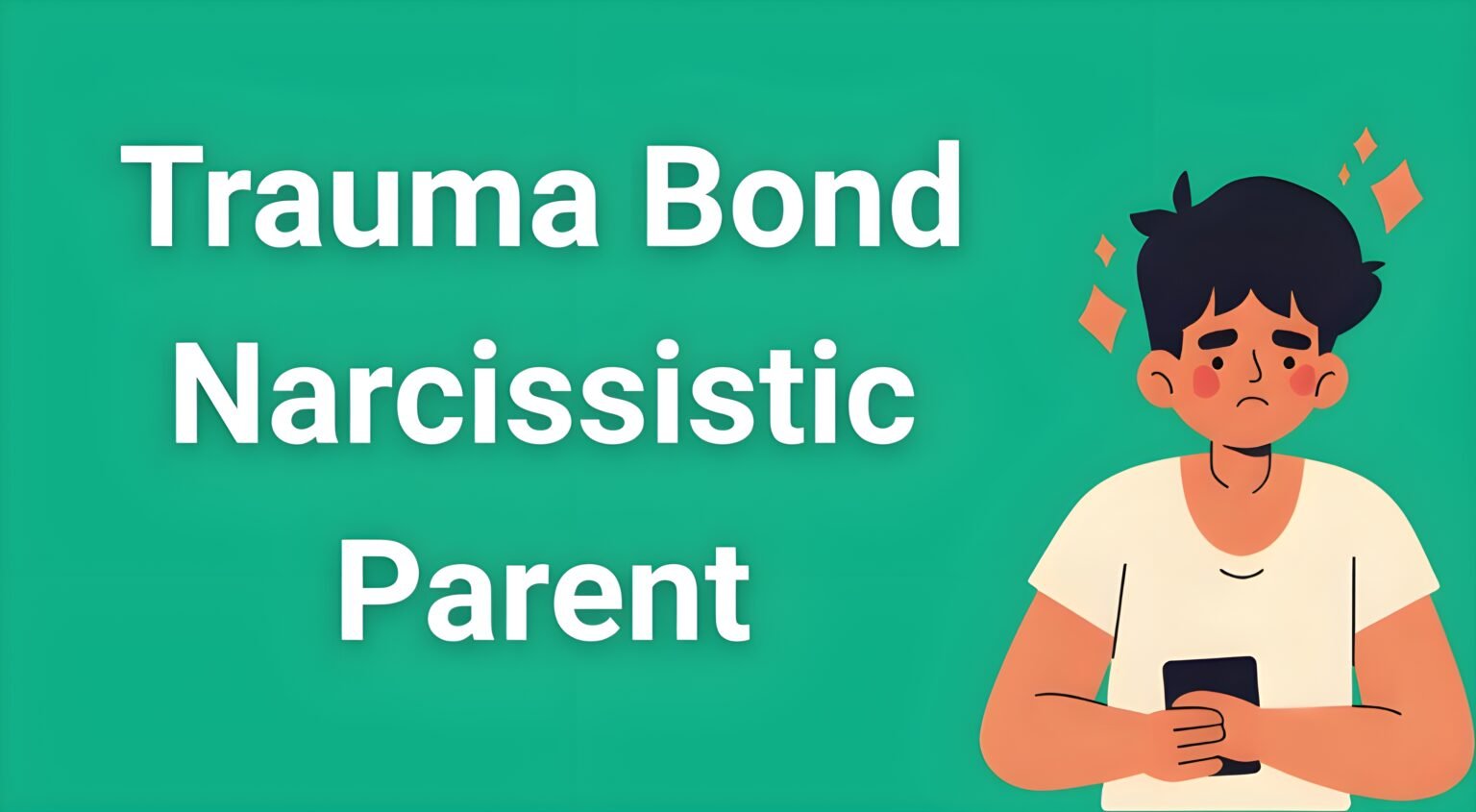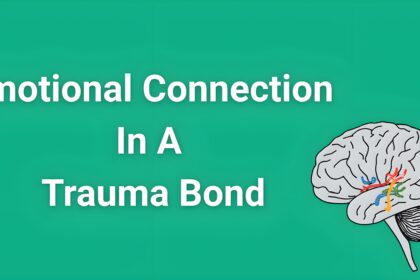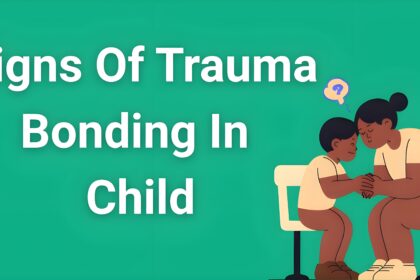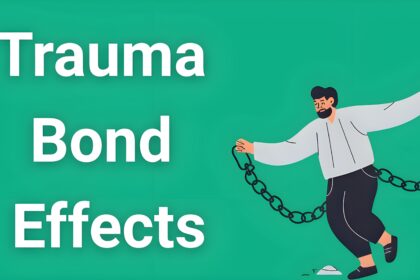Do you find yourself checking your narcissistic parent’s social media obsessively, even though it makes you feel sick? Have you tried to distance yourself countless times, only to get pulled back into their emotional web within days? You’re not weak, and you’re not crazy. What you’re experiencing is a trauma bond with your narcissistic parent – a neurological addiction that’s literally stronger than cocaine.
- What Is a Trauma Bond With a Narcissistic Parent?
- The Neurological Science Behind Trauma Bonding
- 12 Signs You’re Trauma Bonded to Your Narcissistic Parent
- Why Traditional Advice Doesn’t Work
- The Four Stages of Trauma Bond Development
- Breaking Free: A Science-Based Recovery Plan
- Protecting Yourself During the Healing Process
- When Professional Help Becomes Necessary
- Building Your Support System
- Frequently Asked Questions
- Your Path to Freedom Starts Today
This invisible chain keeps millions of adult children trapped in cycles of abuse, desperate for approval from the very people who cause them the most pain. Understanding this hidden addiction is the first step toward breaking free and reclaiming your life.
What Is a Trauma Bond With a Narcissistic Parent?
A trauma bond narcissistic parent relationship is an unhealthy emotional attachment that forms between an abusive parent and their child through cycles of cruelty followed by intermittent kindness. Unlike healthy parent-child bonds built on consistent love and support, these bonds develop through psychological manipulation that hooks your brain’s reward system.
Think of it like a psychological slot machine. Your narcissistic parent occasionally “pays out” with moments of approval, affection, or attention, but the timing is completely unpredictable. These rare positive moments become so powerful that they override years of emotional abuse, criticism, and manipulation.
The trauma bond narcissistic parent creates isn’t your fault. As children, we’re biologically wired to attach to our caregivers for survival. When those caregivers are narcissistic, we adapt by forming unhealthy attachments that can persist well into adulthood.
The Neurological Science Behind Trauma Bonding
Research shows that trauma bonds function exactly like addiction in your brain. When your narcissistic parent occasionally shows you kindness after periods of emotional abuse, your brain releases a powerful cocktail of neurochemicals including dopamine, oxytocin, and serotonin.
Dopamine, the brain’s “reward chemical,” floods your system during these positive moments, creating an addiction-like craving for more approval. Meanwhile, the stress hormone cortisol keeps you in a heightened state of anxiety, constantly scanning for signs of your parent’s mood.
This biochemical process explains why breaking a trauma bond narcissistic parent relationship feels physically painful. Your brain literally believes you need this person for survival, making logical advice like “just cut contact” feel impossible to follow.
12 Signs You’re Trauma Bonded to Your Narcissistic Parent
Recognizing a trauma bond narcissistic parent dynamic can be challenging because it masquerades as love and loyalty. Here are the key warning signs:
Emotional Signs: You feel guilty or anxious when you don’t respond to their calls or texts immediately. Even thinking about disappointing them triggers intense shame. You find yourself making excuses for their behavior to friends and family, defending them even when you know they’ve hurt you.
Behavioral Patterns: You repeatedly attempt to go no-contact but break it within days or weeks, often feeling compelled to check on them or respond to their manipulation tactics. You prioritize their needs over your own, even when it damages your relationships, career, or mental health.
Physical Responses: You experience withdrawal-like symptoms when separated from them, including anxiety, depression, or physical illness. Your body may react to their criticism with panic attacks or chronic stress symptoms.
Cognitive Distortions: You question your own memories and perceptions of abuse, wondering if you’re “too sensitive” or “making it up.” You hold onto hope that they’ll change, despite decades of consistent harmful behavior.
Why Traditional Advice Doesn’t Work
Well-meaning friends and therapists often suggest simply setting boundaries or going no-contact with your narcissistic parent. While these strategies can be helpful eventually, they fail to address the underlying neurological addiction driving your behavior.
Telling someone with a trauma bond narcissistic parent relationship to “just leave” is like telling someone with a heroin addiction to “just stop using.” The brain chemistry involved makes willpower alone insufficient for lasting change.
This is why you might successfully avoid contact for days or weeks, only to find yourself reaching out during moments of stress, loneliness, or weakness. You’re not failing – you’re fighting a biological process that requires specific strategies to overcome.
The Four Stages of Trauma Bond Development
Understanding how your trauma bond narcissistic parent relationship developed can help you begin dismantling it. These bonds typically form through four distinct stages:
Stage 1: Dependency Creation (Early Childhood) Your narcissistic parent alternates between meeting your basic needs and withholding affection, creating anxiety about their approval. You learn that love is conditional and unpredictable.
Stage 2: Identity Erosion (Childhood/Adolescence) Through constant criticism, comparison, and emotional manipulation, your parent systematically breaks down your sense of self. You become convinced that you’re flawed and need their guidance to function.
Stage 3: Trauma Reinforcement (Ongoing) The cycle of abuse followed by intermittent kindness becomes entrenched. Your brain adapts to expect this pattern, making healthy relationships feel “boring” or unfamiliar.
Stage 4: Adult Perpetuation Even as an adult, you continue seeking their approval and defending their behavior. The trauma bond narcissistic parent dynamic persists through guilt, financial dependence, or family obligations.
Breaking Free: A Science-Based Recovery Plan
Healing from a trauma bond narcissistic parent relationship requires rewiring your brain’s response patterns. This process takes time and patience, but thousands of survivors have successfully broken free using evidence-based strategies.
Phase 1: Reality Recognition (Days 1-7) Start by documenting specific incidents of abuse or manipulation. Write down exact quotes and behaviors without interpreting or minimizing them. This reality journaling helps combat the amnesia that trauma bonding creates.
Create a support network outside your family system. Connect with other survivors through online communities or support groups who can validate your experiences and remind you that your parent’s treatment wasn’t normal or deserved.
Phase 2: Nervous System Regulation (Weeks 2-4) Trauma bonds keep your nervous system in chronic fight-or-flight mode. Practice daily grounding techniques like deep breathing, meditation, or gentle exercise to regulate your stress response.
When you feel the compulsion to contact your narcissistic parent, use the “STOP” technique: Stop what you’re doing, Take a deep breath, Observe your emotions without judgment, and Proceed with a conscious choice rather than an automatic reaction.
Phase 3: Cognitive Restructuring (Months 2-6) Challenge the internalized beliefs your narcissistic parent installed, such as “I’m selfish for having needs” or “I owe them everything because they’re my parent.” Replace these with reality-based statements like “My needs matter” and “Love shouldn’t require sacrificing my wellbeing.”
Practice setting small boundaries to build your confidence. Start with low-stakes situations and gradually work toward more significant limits as your emotional strength increases.
Phase 4: Identity Reclamation (Ongoing) Reconnect with your authentic self by exploring interests, values, and goals that aren’t influenced by your parent’s expectations. Ask yourself: “Who would I be if I weren’t trying to earn their approval?”
Developing secure relationships with emotionally healthy people helps rewire your brain’s expectations about love and connection. These relationships provide the consistent, unconditional support that healthy parent-child bonds should offer.
Protecting Yourself During the Healing Process
Recovery from a trauma bond narcissistic parent relationship isn’t linear. Expect setbacks, guilt, and moments of intense grief as you process the childhood you deserved but never received.
Your narcissistic parent will likely escalate their manipulation tactics when they sense you’re pulling away. This might include love bombing, guilt trips, health scares, or involving other family members to pressure you back into the relationship.
Having a crisis plan for these moments is essential. Identify specific people you can call, activities that ground you, and reminders of why you’re choosing to heal rather than continuing the cycle of abuse.
When Professional Help Becomes Necessary
While self-help strategies can be powerful, trauma bond narcissistic parent relationships often require professional intervention. Consider seeking therapy if you’re experiencing suicidal thoughts, severe depression, or find yourself unable to function in daily life.
A trauma-informed therapist who understands narcissistic abuse can provide specialized strategies for your situation. They can help you process childhood trauma, develop healthy coping mechanisms, and navigate complex family dynamics safely.
For those needing immediate clarity about their situation, professional analysis can provide the validation and understanding necessary to begin healing. Getting an expert perspective on your specific dynamics can illuminate patterns you’ve been too close to recognize.
Building Your Support System
Recovery from trauma bonding works best with community support. Connect with others who understand the unique challenges of having a narcissistic parent through online support groups, therapy groups, or survivor communities.
Books, workbooks, and structured recovery programs can provide the daily guidance necessary to rewire trauma bond patterns. Look for resources specifically designed for breaking trauma bonds rather than general relationship advice, as the neurological components require specialized approaches.
Remember that healing happens in layers. You might find yourself cycling through different stages of grief, anger, and acceptance as you process years of accumulated trauma. This is normal and necessary for complete recovery.
Frequently Asked Questions
Q: Can I maintain a relationship with my narcissistic parent while protecting myself?
A: Some people successfully maintain limited contact with strong boundaries, but this requires significant emotional stability and clear recognition of manipulation tactics. Many find that minimal or no contact is necessary for complete healing.
Q: Will my narcissistic parent ever change?
A: True narcissists rarely develop the self-awareness necessary for genuine change. Hoping for transformation often keeps victims trapped in trauma bonds. Focus on changing your response patterns rather than waiting for them to become different.
Q: How long does it take to break a trauma bond with a narcissistic parent?
A: The initial breaking of obsessive thinking patterns can happen within weeks using structured approaches, but complete emotional freedom typically takes 6-24 months of consistent work. Everyone’s timeline is different based on the severity of trauma and available support.
Q: Is it normal to miss my narcissistic parent even though they hurt me?
A: Absolutely. Missing the parent you needed, not necessarily the person they actually are, is a normal part of grief. These feelings don’t mean you should return to an abusive relationship.
Q: What if other family members don’t understand my decision to distance myself?
A: Family systems often protect the narcissistic member through denial or enabling. Stay focused on your own healing rather than trying to convince others who aren’t ready to see the truth.
Your Path to Freedom Starts Today
Breaking a trauma bond narcissistic parent relationship is one of the most courageous things you can do. It requires facing the truth about your childhood, grieving the parent you deserved, and choosing your own wellbeing over familiar patterns of abuse.
The road to recovery isn’t easy, but it’s absolutely possible. Thousands of survivors have reclaimed their lives, built healthy relationships, and broken the cycle of generational trauma. Your healing journey begins with the decision to prioritize your own wellbeing over maintaining a destructive bond.
Remember: You weren’t born to be your parent’s emotional support system, achievement trophy, or verbal punching bag. You deserve relationships based on genuine love, respect, and mutual support. Breaking free from trauma bonding isn’t selfish – it’s essential for creating the life you were meant to live.
The invisible chains of trauma bonding can be broken. Your freedom and peace are worth fighting for, and you have the strength to create the healthy, authentic life you deserve.
Resources for Your Healing Journey:
If you’re ready to gain crystal-clear understanding of your specific situation with expert analysis, consider getting a personalized assessment that breaks down your exact trauma bond patterns and provides a customized recovery roadmap.
For those seeking structured daily support in breaking trauma bonds, specialized workbooks designed specifically for this type of neurological rewiring can provide the day-by-day guidance necessary for lasting change.
Remember, you don’t have to navigate this journey alone. Professional support and proven recovery systems can accelerate your healing and provide the clarity you need to finally break free.






